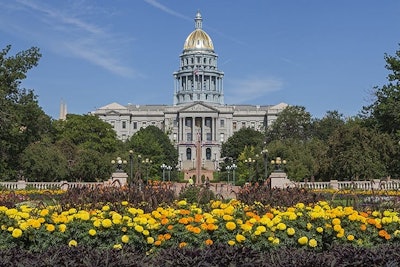
Colorado Gov. Jared Polis signed legislation June 29 that allows him to pardon past cannabis-related convictions, according to a Westword report.
House Bill 1424 grants Polis the power to pardon those charged with the possession of two ounces or less of cannabis before Colorado legalized adult-use in November 2012, the news outlet reported.
The new law takes effect Sept. 14, 90 days after the final adjournment of the legislature, according to Westword.
Those seeking pardons must initiate the process, the news outlet reported, since there is no state database that houses all the crimes, but the Polis administration is expected to implement a streamlined process in coordination with the Colorado Attorney General’s Office.
H.B. 1424 also establishes a definition for eligible applicants for Colorado’s cannabis business accelerator and future social equity programs, according to Westword. To qualify for the programs, an applicant must be a Colorado resident who has been arrested for or convicted of a cannabis-related offense, or subjected to civil asset forfeiture related to a cannabis investigation. Applicants may also qualify if they have lived a zone designated for low economic opportunity or high crime rates, and anyone with a family member convicted of a cannabis-related offense would also qualify, as would applicants with less than a to-be-determined level of household income.
























